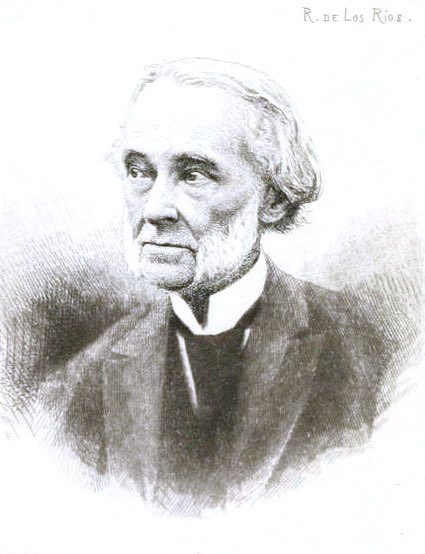
I've seen a lot of buzz about @librarycongress acquiring the manuscript of Omar Ibn Said's memoir. This is exciting news, to be sure -- but the characterization of the event strikes me as unproductive in crucial ways #slaveryarchive #twitterstorians. 👇🏻Thread 1/20
https://twitter.com/analuciaraujo_/status/1087134158130954242
First, it's important to note that this is a well-known text. It's included in Allan D. Austin's "African Muslims in Antebellum America: A Sourcebook" (1984, rev. 1997)
taylorfrancis.com/books/97811360… 2/20
taylorfrancis.com/books/97811360… 2/20
It's also been published as a standalone volume translated and edited by Ala Alryyes (2011)
uwpress.wisc.edu/books/4789.htm 3/20
uwpress.wisc.edu/books/4789.htm 3/20
It's also available at the indispensable @UNC DocSouth database
docsouth.unc.edu/nc/omarsaid/me… 4/20
docsouth.unc.edu/nc/omarsaid/me… 4/20
And it's also in the wonderful "Multilingual Anthology of American Literature" (2000) edited by Werner Sollors and Marc Shell @NYUpress
nyupress.org/books/97808147… 5/20
nyupress.org/books/97808147… 5/20
Second, recent references to the manuscript emphasize its singularity rather than framing it as part of a much deeper and broader history of Arabic slave testimony in the Americas. 6/20
The @washingtonpost piece quotes chief of @librarycongress African and Middle Eastern Division saying, "this is the only extant manuscript of a slave in Arabic, still in existence... written in the United States by a slave who’s still a slave." That is incorrect. 7/20
For starters, there's the diary of Ben Ali, known as the Bilali Muhammed Document. Ben Ali was enslaved on Sapelo Island in Georgia and died in 1857. His journal is housed at @universityofga special collections
hmfa.libs.uga.edu/hmfa/view?docI… 8/20
hmfa.libs.uga.edu/hmfa/view?docI… 8/20
Even better, Ronald Judy wrote an entire friggin' book on it (and its implications for the study of Black writing in the United States)!
upress.umn.edu/book-division/… @UMinnPress 9/20
upress.umn.edu/book-division/… @UMinnPress 9/20
There's also the c.1731-33 letter from Ayuba Suleiman Diallo -- also know as Ben Job Solomon -- to his father, written in Maryland, which you can view online courtesy of @britishlibrary
bl.uk/collection-ite… 10/20
bl.uk/collection-ite… 10/20
And there are also the manuscripts of Abdul-Rahman ibn Ibrahima Sori -- aka Ibrahim Abdur Rahman or Ibrahim Abd ar-Rahman -- who was enslaved in Mississippi. His letters are held at @Yale @yalelibrary and the American Philosophical Association (and elsewhere?). 11/20
Third, there is lots of Arabic slave testimony beyond the US. The collection acquired by @librarycongress with Said's manuscript also contains not one but TWO Arabic manuscripts by an enslaved man named Sheikh Sana See in Panama. Yes, Panama! 12/20
See items 36-38 below
loc.gov/collections/om…
@BayoumiMoustafa published an article on one of these manuscripts in 2003
tandfonline.com/doi/abs/10.108… 13/20
loc.gov/collections/om…
@BayoumiMoustafa published an article on one of these manuscripts in 2003
tandfonline.com/doi/abs/10.108… 13/20
There's also Abu Bakr as-Siddiq from Jamaica, whose testimony is included in R.R. Madden's "A Twelvemonths Residence in the West Indies" (1835). You can read it online courtesy of @ecdaproject @Northeastern @NUlabTMN
ecda.northeastern.edu/item/neu:m0415… 14/20
ecda.northeastern.edu/item/neu:m0415… 14/20
In Jamaica there is also the c.1820 manuscript of Muhammad Kaba Saghanughu. Here's an essay by Paul Lovejoy and Yacine Daddi Addoun
academia.edu/14270870/Arabi…
You can also view the manuscript courtesy of @YorkUnews @TubmanInstitute
tubmaninstitute.ca/sites/default/… 15/20
academia.edu/14270870/Arabi…
You can also view the manuscript courtesy of @YorkUnews @TubmanInstitute
tubmaninstitute.ca/sites/default/… 15/20
And finally there are plenty of manuscripts found in the aftermath of the 1835 uprising in Bahia, Brazil. The definitive book (so far) on this topic is João José Reis's "Slave Rebellion in Brazil: The Muslim Uprising of 1835 in Bahia" (1993) @JHUPress 16/20
For those interested in the histories of Islam and slavery in the Americas, the primer is still @sylvianeanna's "Servants of Allah: African Muslims Enslaved in the Americas" (1998, 2nd ed. 2013) @NYUpress
nyupress.org/books/97814798… 17/20
nyupress.org/books/97814798… 17/20
OK SO SOME CONCLUSIONS:
1. Said's manuscript is fascinating and significant but not unique.
2. Said's manuscript is part of a broader and deeper archive of Arabic slave testimony in the US and the rest of the Americas 18/20
1. Said's manuscript is fascinating and significant but not unique.
2. Said's manuscript is part of a broader and deeper archive of Arabic slave testimony in the US and the rest of the Americas 18/20
3. These archives comprise autobiographical texts as well as letters, prayers and Qu'ranic writings, legal treatises, and more. There is no historical reason to assume that enslaved testimony, especially in non-Anglophone contexts, would or should be autobiographical. 19/20
4. The hubbub around Said's manuscript is likely due to its autobiographical aspect, which is legible according to the analytical rubrics derived from the American slave narrative tradition.
5. Slave testimony =/ slave narrative.
Want more? Read my diss. Love ya mean it 😘 20/20
5. Slave testimony =/ slave narrative.
Want more? Read my diss. Love ya mean it 😘 20/20
• • •
Missing some Tweet in this thread? You can try to
force a refresh






